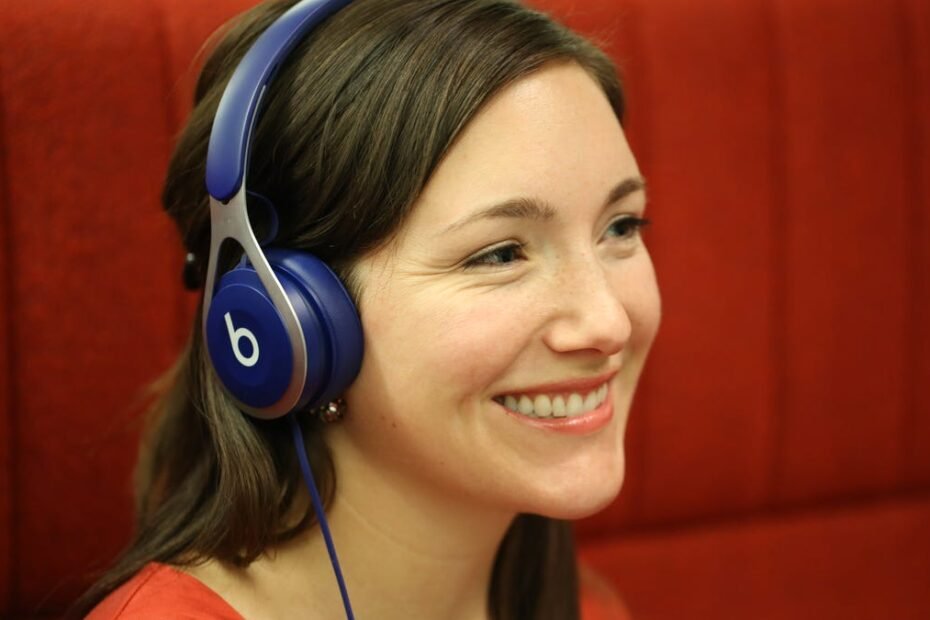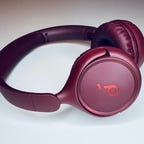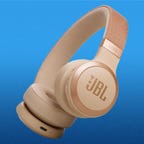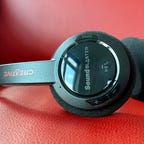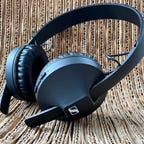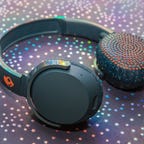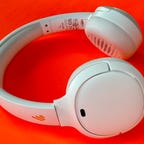What are the best on-ear headphones overall?
Though around-ear or over-ear headphones tend to deliver the best sound and listening experience, not everyone wants to walk around wearing full-size headphones, which can sometimes be a little bulky. Though headphones that sit on top of your ears aren’t everyone’s thing, on-ear models with smaller ear cups are more compact and travel-friendly, and tend to cost less (several models on this list are under $50). They’re also good for folks with smaller heads, including kids. Note that the majority of on-ear headphones don’t offer active noise canceling, though some do.
I’ve tested all the models on this list, evaluating their design, comfort level, sound quality, voice-calling performance and noise-canceling prowess (if they offer that feature). They’re all wireless headphones, but most of them also offer a wired connection. I recently added the Beats Solo 4 and JBL Live 670NC to the list and will continue to add worthy on-ear models as they hit the market. If none of these headphones piques your interest, you can check out CNET’s other headphone best lists, such as our best wireless earbuds list and our best noise-canceling headphones list.
Best on-ear headphones for 2024
Sony released its new entry-level CH-720N noise-canceling headphones in 2023. They’re quite good, but if you can’t afford them (they list for $150), the company’s new budget on-ear WH-CH520 headphones are an intriguing option for only around $50.
They lack noise canceling and are pretty no-frills, but they feature good sound for their price, are lightweight and pretty comfortable for on-ear headphones, and also have excellent battery life (they’re rated for up to 50 hours at moderate volume levels. Additionally, they have multipoint Bluetooth pairing, so you can pair them with two devices simultaneously (such as a smartphone and computer) and switch audio. Voice-calling performance is decent, though not up to the level of what you get with the CH-720N.
Note that there’s no wired option — this is a wireless Bluetooth-only headphone. The CH-520 offers overall balanced sound with decent clarity. The bass has some punch to it but doesn’t pack a wallop, and you’re not going to get quite as wide a soundstage as you get from Sony’s more expensive over-ear headphones. But these definitely sound better than Sony’s previous entry-level on-ear headphones and sound better than I thought they would. I tried the white color but they also come in blue and black.
The Soundcore H30i are inexpensive on-ear wireless headphones that compete with the Sony CH-520 and JBL Tube 510BT (the Tune 520BT is its new-for-2024 successor). There’s no active noise-canceling and the headphones are pretty no frills, but they do feature decent sound quality with ample bass for their low price and you can pair them to two devices simultaneously (multipoint Bluetooth). I’m slightly more partial to the Sony CH-520, which are slightly more comfortable and sound slightly better (they have a tad more clarity). That said, the H30i have a folding design, and while they don’t come with a carrying pouch, they do include a headphone cord for wired listening (the Sonys are wireless only).
Battery life is impressive — the H30i are rated for up to 70 hours of listening at moderate volume levels. And while you shouldn’t expect great voice-calling performance, it is acceptable in quieter environments. I also appreciated that you can tweak the sound profile in the companion Soundcore app for iOS and Android.
In a nutshell, the Beats Solo 4 on-ear headphones have pretty much the same look on the outside as the 3s, but some notable improvements on the inside bump their performance by about 25% to 30% when it comes to sound quality, battery life and voice-calling.
Would I pay $200 for them? No, I wouldn’t. But if you look at what’s happened with the Studio Pro’s pricing — they’re sporadically discounted to $200 or $150 off their list price and even dropped to $180 for Prime Day — the Solo 4s won’t always be $200. I’m certain we’ll see them fairly soon for what the Solo 3s now cost, which is around $130. They make a lot more sense at that price, particularly if you’re looking for a more compact on-ear headphone and don’t need active noise canceling.
JBL’s Live 670NC and Tune 670NC are among the relatively small number of on-ear models that offer active noise canceling. They’re both relatively affordable, but the Live 670NC version has a more premium look and feel to it, with better ear pads that are clearly more durable. It also has sound that’s a little better, with 40mm drivers that offer good detail and punchy bass. Battery life is rated at up to 65 hours (or 50 hours with ANC on), and an extra four hours of battery with just five minutes of charge. This model includes the latest Bluetooth 5.3 (with LE Audio) and multipoint Bluetooth pairing. It also has JBL’s Ambient Aware (transparency mode) and TalkThru features. It’s available in black, white, blue and sandstone and comes with a cord for wired listening.
The headphones list for $130 but regularly dip to $100.
I was a fan of Creative’s original Sound Blaster Jam headphones that came out in 2015 and had a decidedly retro look and feel with good sound for the money. Now the headphone is available in a 2.0 version that has some key upgrades, including Bluetooth 5.0, USB-C charging, improved call quality and multipoint Bluetooth pairing that allows you to pair it to two devices simultaneously. Battery life is rated at up to 22 hours.
I was able to pair the headphones with a Mac Mini and an iPhone and then switch audio between them. Often when pairing Bluetooth headphones with Mac and Windows PCs, one can encounter some issues, but once I got the headphones paired with both my PC and phone, they made a good pair of work-from-home headphones. Also, the price is right for parents looking for a decent set of kids’ headphones for remote learning and everyday use.
Comfortable for on-ear headphones, the Jam V2 are lightweight and have nicely balanced sound with good detail and bass that’s ample but not overpowering. Call quality was good in my tests with callers saying they could hear me well even on the noisy streets of New York. No carry pouch is included, but you do get an extra set of foam ear pads, which is good because they will wear out over time.
The headphones have physical buttons for controlling volume and playback and there’s aptX support for devices that support the wireless streaming codec.
The last few years I’ve written up a fair number of new Sennheiser headphones, most of which have had more premium price tags. But the company also has a fairly new $70 on-ear wireless model, the 250BT, that should appeal to those on a tighter budget. Equipped with Bluetooth 5.0, its features seem pretty basic, but it does have 25-hour battery life, as well as support for the AAC and aptX audio codecs, and it also taps into Sennheiser’s Smart Control app, allowing you to customize the sound a bit.
Sennheiser describes the 250BT as having club-like sound, and that’s a fairly apt take. There’s lots of energy in the bass and some sparkle in the treble. This is what I like to call an exciting headphone — dynamic, fun. I can’t say it’s got premium build quality (it looks and feels like a more of a budget model). But it’s lightweight and comfortable for an on-ear model, though it lacks any padding on the inside of the headband so I occasionally had to make adjustments to relieve a little pressure on the crown of my head.
You can use the 250BT as a headset for making calls — it works reasonably well for that — but Sennheiser doesn’t really talk up the call quality, mentioning only that the headphones have a built-in microphone. The noise-isolating ear pads cut the background noise, giving you a better listening experience. This headphone is more about the sound and it did grow on me over time.
Skullcandy’s Riff is the spiritual successor to the Grind Wireless, which I liked for the money. Available in multiple color options, it retails for around $50 and has puffy, pillowlike ear cups that make these comfortable headphones for an on-ear model. It also has great sound for its price, with open, detailed sound quality and plump bass that’s relatively well-defined. My only gripes about its ear cup design are that the top doesn’t feature a padded headband (at the crown of your head) and it feels a little cheap, with no metal parts. That said, it’s nice and light and has a dual-hinge that allows the headphone to fold up and fold flat. No carry pouch is included. Battery life is rated at only 12 hours, but a fast charge feature lets you get 2 hours of juice from a 10-minute charge (this has micro-USB charging not USB-C).
There’s nothing terribly fancy about the Edifier WH500 on-ear headphones. They’re lightweight and relatively comfortable for on-ear ‘phones, and they sound decent for the money. These do have a companion app, so you can upgrade the firmware and customize their sound (there are some EQ settings to play around with). Battery life is rated at up to 40 hours, and the headphones work just fine as a headset for making calls (just not great). They’re available in three color options.
